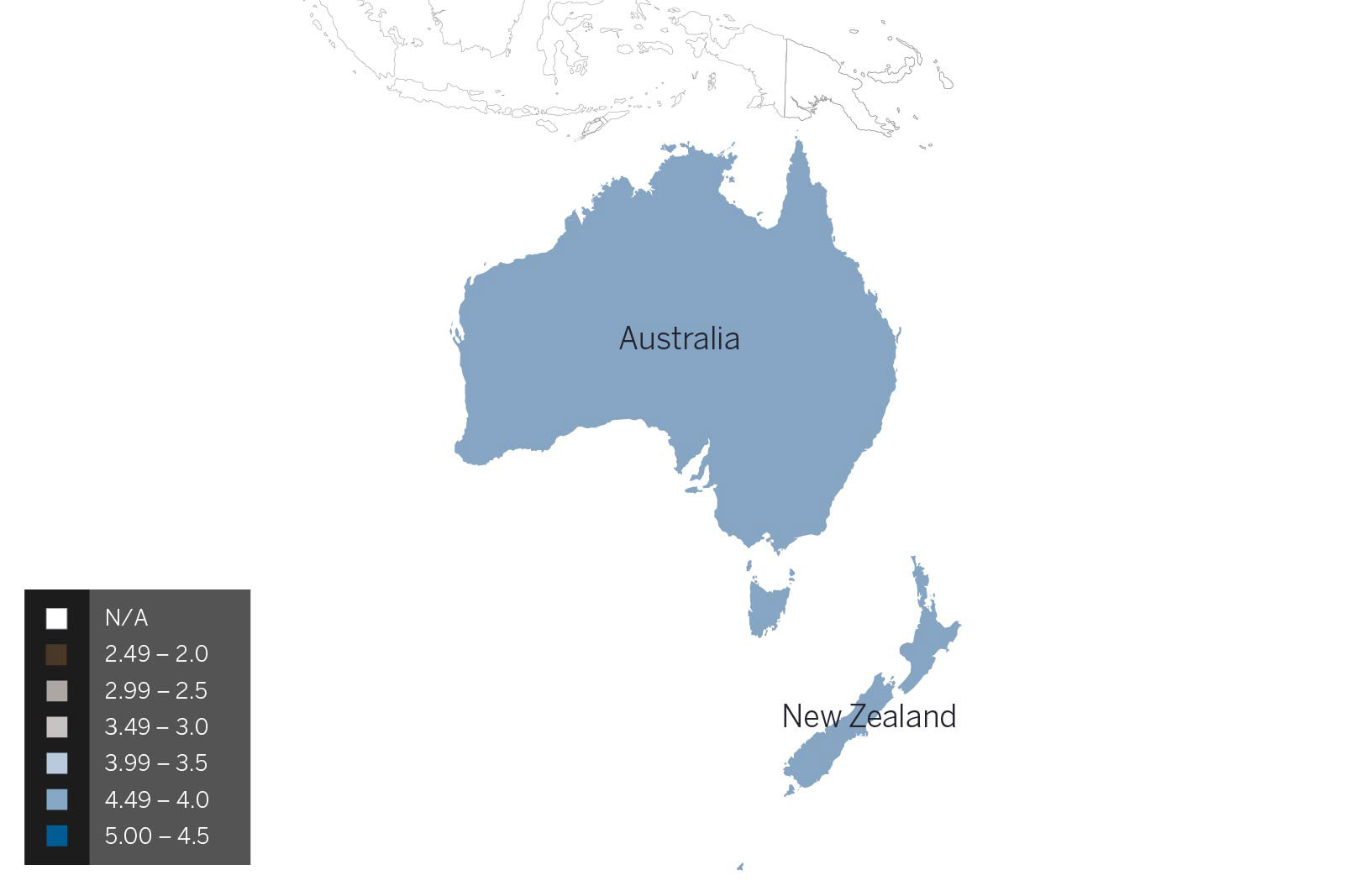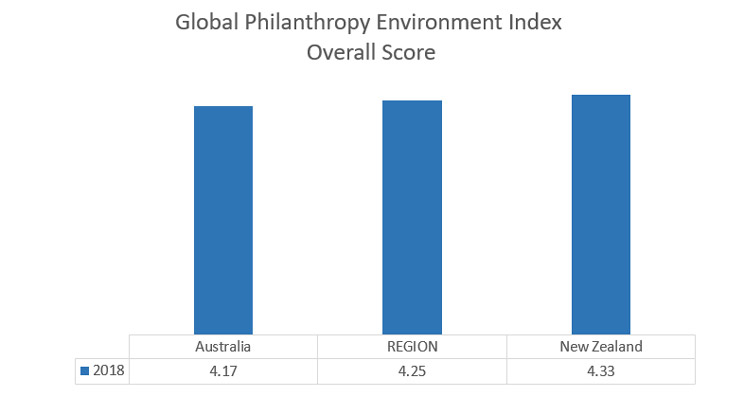Oceania is a region of the South Pacific Ocean that comprises multiple islands. The United Nations divides the region into four sub-regions: Australia and New Zealand (including also the Christmas Islands, Keeling Islands, Heard Island and McDonald Islands, and Norfolk Island), Melanesia, Micronesia, and Polynesia. The entire region has an estimated population of almost 39 million; Australia and New Zealand account for 75 percent of the population in the region. However, the second most populated country in Oceania is Papua New Guinea in Melanesia, with eight million inhabitants.
View the full Oceania region reportOceania

Australia and New Zealand are democracies that have shown significant economic progress in the last 30 years. The Index of Economic Freedom (2017) categorizes Australia as one of the wealthiest Asia-Pacific nations, competitive in services, technology and manufactured goods. New Zealand is also a prosperous democracy that has a “strong commitment to economic freedom” and places a high value on international trade.
For years, the two countries have reached agreements for economic integration to cut down trade barriers between nations. The recent Pacific Agreement on Closer Economic Relations Plus (PACER Plus) in 2017 extends to the Pacific Island economies with the intention to bring sustainable development to the whole Pacific region.
The latest censuses in Australia (2016) and New Zealand (2013) show that Christianity, in its various denominations is the most represented religion in both countries (41.9 percent in Australia and 47.6 percent in New Zealand). Other religions include Buddhism, Hinduism, and Islam. Educational attainment in both countries is relatively high in comparison with other OECD countries. In 2016, 43.4 percent of 25-34 year-olds had completed tertiary education in New Zealand, and in Australia, this portion was 49.3 percent.
The environment for philanthropy in Australia and New Zealand is generally good. Both New Zealand and Australia enjoy stable democracies with high rankings on Transparency International’s perceptions of lack of corruption.
A key issue for Australia is growing tension around the advocacy activities of environmental organizations, a surprising development given Australia’s statutory recognition of the importance of advocacy by charities in section 12(1)(l) of its Charities Act 2013. Advocacy by charities is also a key issue in New Zealand, with many charities denied registration or facing deregistration for this reason.
Australia is also affected by a lack of harmonization of state fundraising legislation, creating a significant burden for charities operating in more than one state in Australia. New Zealand, by contrast, has a unicameral one-state system with fundraising largely self-regulated.


